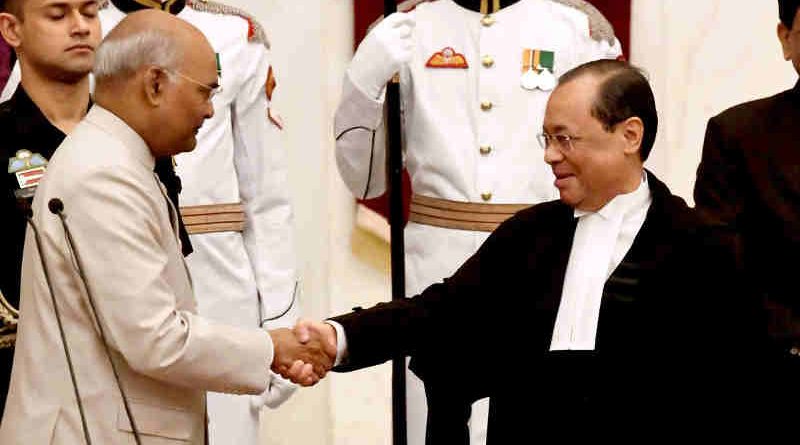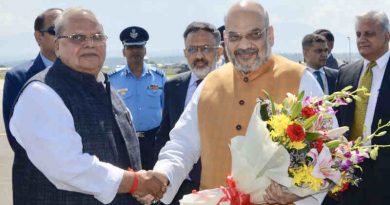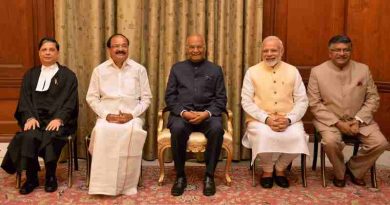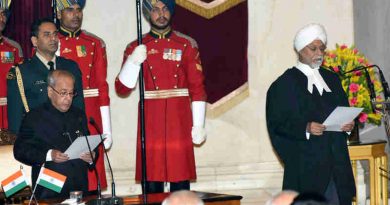Petition Demands Removal of Former Chief Justice Ranjan Gogoi from Rajya Sabha
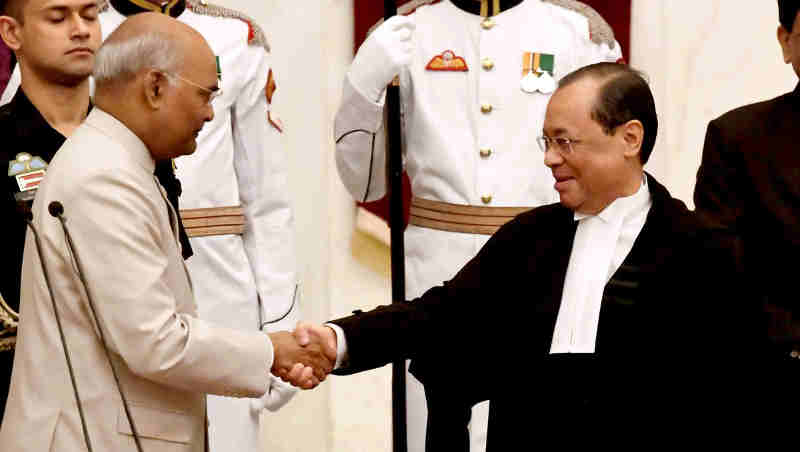
The petition says that Gogoi should be removed from parliament with or without retrospective effect.
By Rakesh Raman
A petition in the Supreme Court of India has challenged former chief justice of India (CJI) Ranjan Gogoi’s appointment to the Rajya Sabha, the Upper House of the bicameral Parliament of India.
Gogoi was nominated to the Rajya Sabha by the government of prime minister (PM) Narendra Modi in March 2020, four months after he retired from the Supreme Court.
The Wire news service reported on August 30 that at the time of the nomination, several constitutional experts, rights activists and others had criticised the decision. They contended that the constitutional separation of powers between the executive and the judiciary was being blurred.
The recent plea, according to LiveLaw news site, filed by lawyer and social worker Satish S. Kambiye, asks by what authority, qualification and title Gogoi has been nominated to the Upper House. After an inquiry, the plea says, Gogoi should be removed from parliament with or without retrospective effect.
As per the biodata provided on the Rajya Sabha website, the petitioner contends that Gogoi has neither published any books as an author nor did he contributed anything to the society by way of social, scientific, literary, or cultural activities. These are the requirements to become a Rajya Sabha member.
The petition, according to the LiveLaw report of August 29, also points out that respondent Gogoi does not have any special knowledge or practical experience towards literature, science, art, and social service.
Given these facts, the petition says, the government notification nominating Gogoi – under Article 80 (1) (a) read with (3) of the Constitution – does not stand as the requirements for these clauses are not fulfilled.
Earlier, in March 2020, an activist Madhu Purnima Kishwar had filed a public interest litigation (PIL) in the Supreme Court against Gogoi’s nomination to the Rajya Sabha. In her petition, she alleged that Gogoi’s appointment casts a shadow on the independence of the judiciary.
[ Also Read: Citizens Must Speak Truth to Power: SC Judge Chandrachud ]
Gogoi’s nomination, she argued, counts as an assault on this independence. “His (Gogoi’s) nomination as a Rajya Sabha member by the President of India gives it the colour of a political appointment and therefore casts a shadow of doubt on the credibility of the judgments delivered under his headship of the Supreme Court,” Bar and Bench quotes the PIL as saying.
During his tenure, Gogoi had completely tarnished the image of the Supreme Court which had been reduced to the level of a party office of Bharatiya Janata Party (BJP) headed by PM Modi.
As a judge, Gogoi was pronouncing judgments such as the Ayodhya verdict and decision on the Rafale corruption case to meet Modi’s expectations. In all autocratic regimes that work under the garb of democratic systems, the rulers silently use courts to impose their own decisions on citizens and suppress all kinds of dissent.
That’s what Modi has been doing by virtually holding Gogoi to ransom. Throughout his tenure, Gogoi was made to grapple with his own sextortion / sexual harassment case filed by a woman employee, who was removed from her job and later reinstated after Gogoi’s retirement.
At last the woman employee who was sexually molested by CJI Gogoi and victimized along with her family has been reinstated.
There was no vice which was not in Ranjan Gogoi. And yet this rascal and rogue rose to become CJI. It speaks volumes about our judiciary.
— Markandey Katju (@mkatju) January 22, 2020
Justice Markandey Katju – a former Judge of the Supreme Court of India and former Chairman of Press Council of India – said, “At last the woman employee who was sexually molested by CJI Gogoi and victimized along with her family has been reinstated. There was no vice which was not in Ranjan Gogoi. And yet this rascal and rogue rose to become CJI. It speaks volumes about our judiciary.”
REWARD FOR COMPLICITY
But Gogoi is not the only judge who has been rewarded by the Modi government for his complicit conduct. Former Supreme Court Judge, Justice Arun Kumar Mishra, was handpicked by the Modi government for the post of Chairman of the National Human Rights Commission (NHRC). Mishra – who is known for his sycophancy for Modi – took charge on June 2 despite strong opposition to his selection.
Recently, retired judge Surendra Kumar Yadav, who gave the verdict in the controversial Babri mosque demolition case last year, was chosen for the up-Lokayukta (deputy Lokayukta) position in Uttar Pradesh. He took the oath of office on April 12.
The office of Lokayukta is an anti-corruption authority that investigates cases related to corruption, government mismanagement, or abuse of power by public servants or ministers.
As a judge of the special CBI (Central Bureau of Investigation) court, Yadav had on September 30, 2020 acquitted all the 32 accused in the case of demolition of Babri mosque in Ayodhya on December 6, 1992.
The acquitted leaders, who mainly belong to the Bharatiya Janata Party (BJP) of PM Modi, include L.K. Advani, M.M. Joshi, Uma Bharti, and Kalyan Singh.
A number of rights activists and civil society organizations had termed the verdict in the Babri Masjid (mosque) demolition case as yet another nail in the coffin of Indian democracy and questioned the role of judiciary. They had demanded that the CBI should challenge the decision in the higher court. But the outcome did not change and the judge was rewarded for his judgement in favor of the ruling regime.
[ Also Read: Police Misuse Power to Harass Govt Critics: Chief Justice Ramana ]
Earlier, K.V. Chowdary – who had retired as the Central Vigilance Commissioner (CVC) which is India’s top anti-corruption organization – was hired as additional director on the board of Reliance Industries Limited (RIL) led by Mukesh Ambani.
Ambani is a close capitalist friend of Modi, who has been embroiled in multiple corruption scandals. As the CVC of India, Chowdary intervened to get all investigations against Modi dropped.
As the Modi government has given top administrative and judicial posts to its own loyal men who could cover up the crime and corruption cases in which top BJP politicians are involved, there has been a huge controversy over the manner the anti-corruption ombudsman Lokpal was appointed.
Recent reports suggest that the entire exercise of the appointment of Lokpal was held in a dubious manner and Lokpal has been ignoring the corruption cases of top politicians.
Similarly, the appointment of Rakesh Asthana – who is believed to be a loyalist of the Modi government – as Delhi Police Commissioner has been challenged in the Supreme Court.
The top court asked Delhi High Court on August 25 to decide “preferably within a period of two weeks” the plea pending before it challenging the appointment of Asthana as Delhi Police chief.
Although people are raising their voice against such dubious appointments, it is unlikely that the Modi government will remove its yes-men from their positions.
By Rakesh Raman, who is a national award-winning journalist and social activist. He is the founder of a humanitarian organization RMN Foundation which is working in diverse areas to help the disadvantaged and distressed people in the society.

